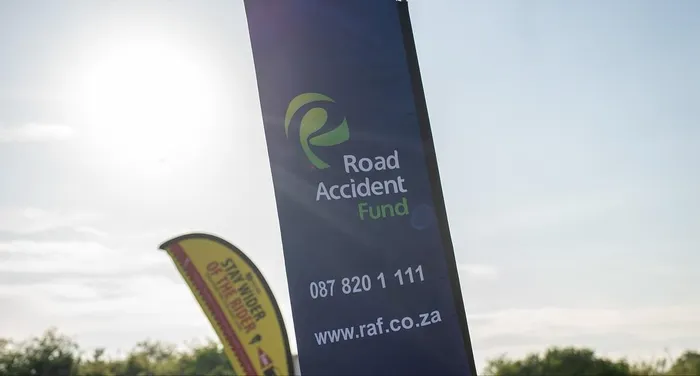
The Road Accident Fund (RAF) will have to pay a woman R133 million in a settlement linked to the death of her husband in an accident.
Image: RAF/Facebook
THE embattled Road Accident Fund (RAF) has failed in its bid to overturn a R133 million settlement for psychiatric injury linked to the death of a complainant's husband in an accident.
The Supreme Court of Appeal held that the RAF had not demonstrated a risk of grave injustice or disrepute to the administration of justice.
The RAF had appointed a new expert, a US-based psychiatrist, who contradicted the earlier expert agreement about the woman’s psychiatric injury and its connection to the accident.
“The attempt to rely on a new expert report years into the litigation, after clear admissions and partial settlements based on contrary expert consensus, does not constitute a jurisdictional basis for reconsideration. The application for reconsideration in terms of s 17(2)(f) is dismissed with costs,” stated Acting SCA Judge, Daniel Dlodlo.
The matter dates back to a 2006 accident, where the woman’s husband died.
Summons was issued in September 2009, and the matter had endured a long procedural history involving multiple legal representatives and experts over the years.
The respondent’s claim included damages for past and future loss of earnings and/or earning capacity, loss of support, general damages, and medical expenses. Both parties had appointed psychiatrists and clinical psychologists, whose joint expert minutes had agreed that the respondent had suffered a serious psychiatric injury as a result of her husband’s death in the accident.
The RAF had admitted liability for 100% of the respondent’s proven or agreed damages in its 2022 amended plea and had settled claims for general damages and medical expenses on the basis of her psychiatric injury.
However, after appointing a new psychiatrist based in the USA, and receiving her reports in late 2022, the RAF attempted to amend its plea via an application at the high court.
It sought to deny that the respondent had suffered a psychiatric injury caused by the accident; to argue that there was no causal link between her mental state and the collision; and to assert that she retained residual earning capacity.
The RAF argued that the parties’ compromise was based on a common incorrect assumption that the woman had suffered a psychiatric injury, thereby rendering the agreement void.
However, Dlodlo found that this argument was not borne out by the facts, as at the time the settlement was reached, all expert reports, on both sides, confirmed the respondent’s psychiatric injury.
“(The US psychiatrist’s) opinion came many years later and does not retroactively render that consensus mistaken. In totality, the RAF’s application is characterised by inexcusable delay, a lack of a full and frank explanation, procedural prejudice to the respondent, and weak prospects of success,” court papers read.
Cape Times